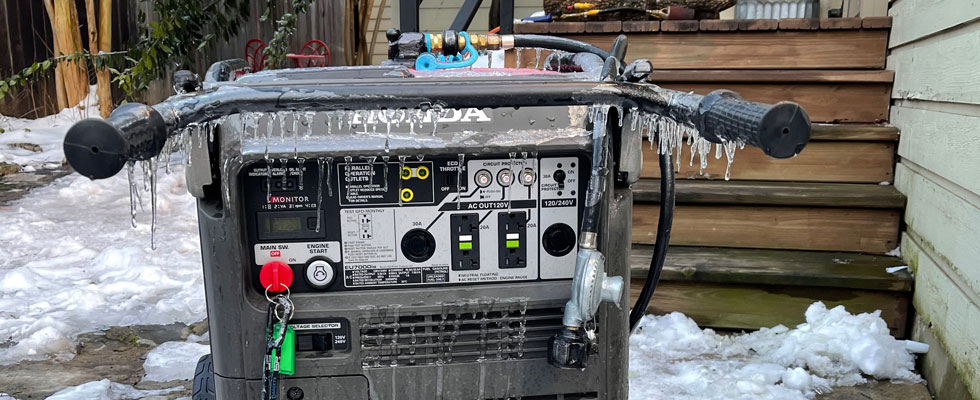
When historic levels of snow hit Texas and caused outages of electrical power and running water in February, the staff of the Texas Propane Gas Association (TPGA) sprang into action.
To help the state’s propane marketers deliver fuel to their customers, association staff obtained waivers to regulations, relayed news and details about those waivers to members, coordinated responses to problems with road conditions and supply, and communicated information to consumers.
The association’s executive director, Bill Van Hoy, noted that Texans are much more accustomed to hot weather and hurricanes. Still, the state’s propane marketers and the association were prepared to respond to the challenges of cold weather.
“You always learn from weather-related events,” he said. “You learn to deal with the supply and logistics issues. You learn [how] to schedule people, because you know you can’t run them 24 hours a day. You learn to prioritize and determine who to deliver to first. Based on lessons learned from the hurricanes we’ve had in the past and will have in the future, we were prepared to deal with the cold.”
The cold caused a variety of problems for those supplying and delivering propane, Van Hoy added. Propane marketers had to cope with icy roads, particularly through overpasses; equipment at supply points that went down or slowed down considerably; employees who were unable to get to the office; power outages; and cellphone outages.
Still, Texas propane marketers kept customers supplied. Hospitals and nursing homes with propane-fueled backup generators, for example, were at the top of marketers’ lists for deliveries when the electricity went out. “I haven’t heard of any of these facilities running out,” Van Hoy said. “I for sure would have been called if they had. I’m always pleased when I don’t get those calls asking, ‘Why did you let these people go cold?’”
Actions Taken
To help the association’s 400 members deliver propane during these difficult conditions, the staff of TPGA responded in several ways, including the following:
- They worked with the Texas Department of Emergency Management and the Texas Department of Public Safety on Texas hours of service relief. This exempted motor carriers in Texas providing direct assistance to the delivery of propane and home heating oils to storage facilities and homes in Texas from Federal Motor Carrier Safety Regulations regarding maximum driving time for property-carrying vehicles. With the waiver, propane marketers and drivers have the discretion to run more hours in order to make deliveries, if it can be done safely. Van Hoy noted that regulators take seriously the decision to allow a waiver. They balance the risk of drivers operating more hours against that of consumers going without a delivery of propane. “It’s a balance,” he said. “I have rarely asked for a waiver, and never when it was not necessary. We get names, numbers and statistics to substantiate our request. That’s the job of a trade association.”
- They notified members that the Texas Department of Motor Vehicles suspended vehicle size and weight requirements for operators of commercial motor vehicles to travel in and through Texas to provide disaster assistance in Texas. “These restrictions limit how much product you can carry and which vehicles you can drive on certain roads,” Van Hoy said. “Marketers know they can add a little more fuel or take a faster route when these restrictions are suspended.”
- They alerted members that the Railroad Commission of Texas, the state’s energy regulatory body, waived the requirement for companies to have a transportation-related liquefied propane gas license and waived the registration of transports and bobtails transporting propane. “This waiver enabled trucks to come into Texas to help without having a license in Texas,” Van Hoy said. “This, too, is something that is only done in dire situations, when conditions are tough. This hadn’t happened since the winter of 2013 or 2014.”
- They communicated these winter compliance relief and waivers to members of the association. This was done primary via email and fax. “We send out the actual hours of service waiver from the person who approved it,” Van Hoy said. “We also explain the how, what and when in a very clear way that’s not wordy. I and the staff run every email alert past each other and revise it until we get it right. We get a lot of compliments about how easy it is to understand. We know the acronyms of the government agencies, but marketers may not, so we use clear language.”
- They got the Texas Department of Transportation to salt roads for loading rack terminals. “We got a call that a major supply point had product, but the access point to it has overpasses and the trucks were piled up there,” Van Hoy said. “They needed the roads salted. Getting to the guys with the salt is not an easy task. A staff member found the right person and explained what was going on. Within an hour, they had a guy out there.”
- They coordinated fuel for propane community systems. Association staff verified the need for a delivery by making certain the caller was looking at the gauge and not just hearing about the reading secondhand. They then found a source of propane. There are about a hundred community systems of different sizes in Texas. Some have as many as 2,000 people on a community system. “I watch them closely because if you let them run out, there are going to be many complaints,” Van Hoy said. “I think a few ran out, but they were supplied very quickly. From what I have seen online, customers were not upset; they understood the environmental challenge and they were thankful. They welcomed the guy who delivered the propane.”
- They fielded calls from consumers looking for propane and helped find it. Van Hoy and three staffers fielded hundreds of calls. After finding out if the consumer was looking for a cylinder or a delivery, they provided contact information for sources. “We reached out to folks who fill cylinders to see if they were doing that and how long they thought they could keep going with that,” Van Hoy said. “As far as delivery to a house, we could only refer consumers to their normal company. If that company couldn’t deliver, we have an online directory of propane marketers.”
- They reached out to consumers with messages on Facebook. The association has robust social media platforms and shares with consumers information, such as how to check a gauge, what a 20% reading means, how much propane a home of a given size is likely to burn per day, and when to call a supplier for a delivery. “We remind consumers that our members want to serve them but are challenged by these conditions just like everyone else is,” Van Hoy said. “We help consumers as much as we can. We don’t sell gas, but we help how we can with communications.”
Preparations Made
Based on their past experiences with hurricanes, the association and many of the state’s marketers had made preparations. Van Hoy noted that other marketers and consumers of propane can also prepare for future weather-related events or other power disruptions.
1. Have Backup Suppliers of Propane
“When events like this happen, there’s confusion and people worry they’re not going to get their delivery. So, they look for a second source of supply,” Van Hoy said. “That’s a lesson to be learned. Have a plan in place for supply—not only A, but also B and C. Not everyone has done that.”
2. Have a Backup Communication System
“We have a cloud-based phone system that we can monitor from anywhere, anytime,” Van Hoy said. “We all have cell phones, but all the office phones roll to the cell. We are never unable to talk with members. We are 100% cloud-based in our back-office software, too. That is good, because there were days we couldn’t get to the office.”
3. Have a Source of Information You Can Rely On
This source should have answers for things like waivers of hours of service and other regulations. “We alert our members about these waivers,” Van Hoy said. “We even put out messages to members that we are working on it so they can plan. We also estimate the likelihood we will get it and when we expect to get it. We are an extension of our members’ companies; my staff does a great job.”
Overall, with preparations like these, the industry delivered in these difficult conditions. “Our industry’s story is a good one,” Van Hoy said. “Of course, you can always improve, but I think we came out of it well.”


